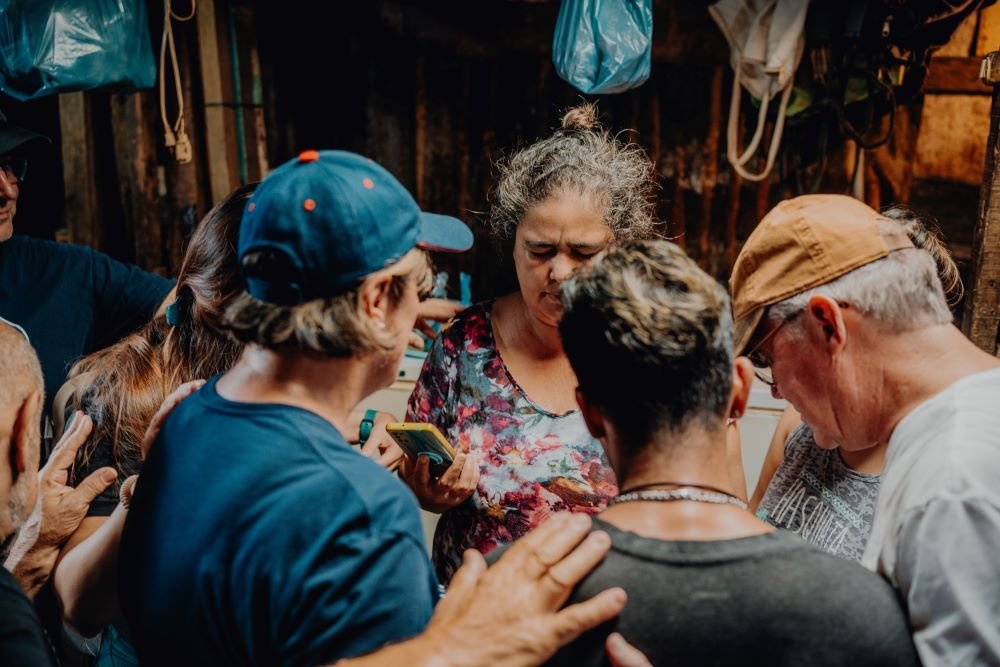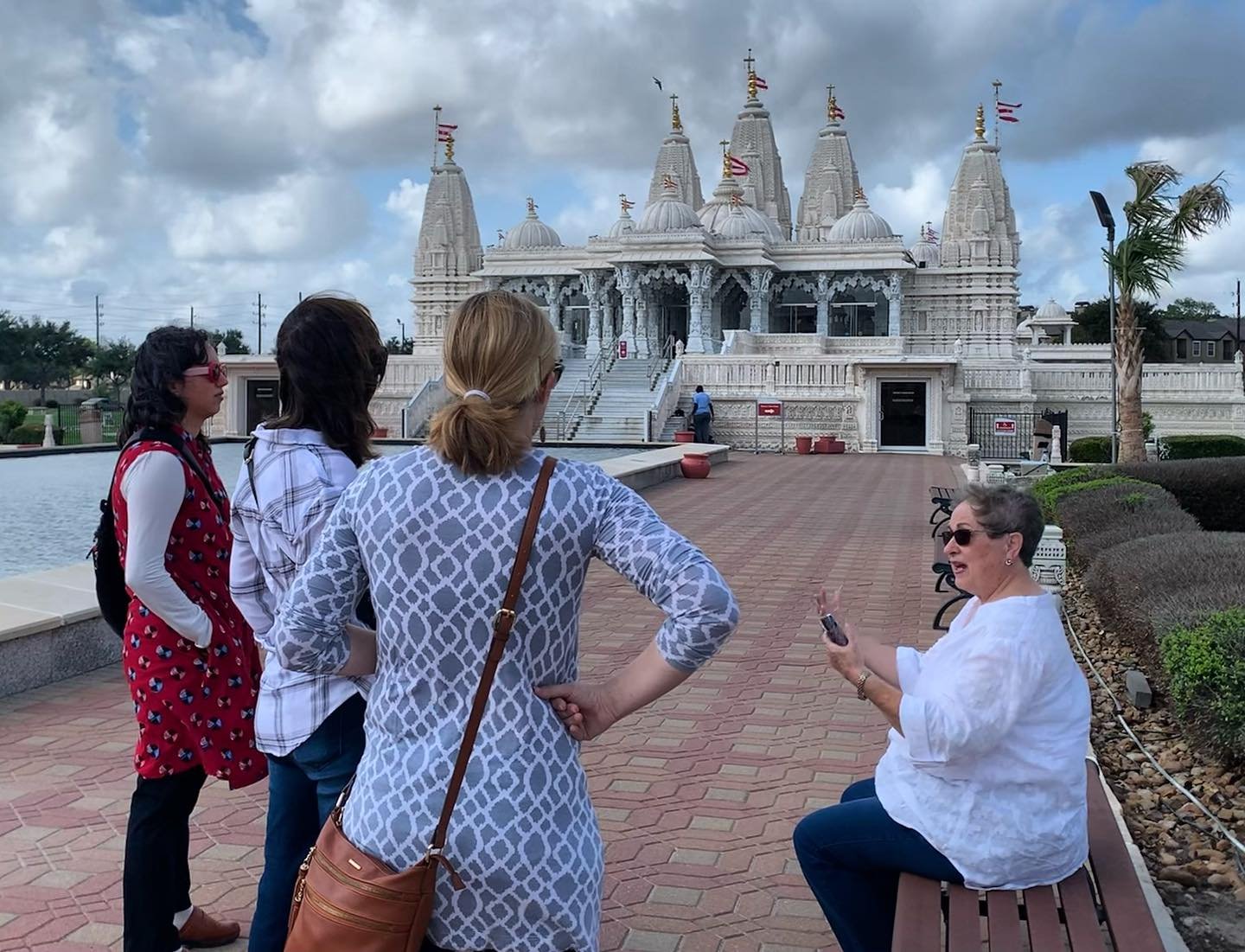How are missionaries made?
Whenever people find out I moved to Africa as a naive 20-something, a stream of questions usually follows:
What did your family think?
Who went with you?
Why?
Inevitably, someone asks how in the world I got to Burkina Faso—a country most people can't pronounce nonetheless find on a map. And honestly, I've wondered that myself.
Looking back at my own life, though, it's clear. God's providence and the faithful discipleship of the local church set me on a path with the heart and tools I needed to be a missionary. I hope my experience helps you understand how missionaries are called and sent.
If you or someone you know is being called to missions, use the resources you already have—like UBA’s missionary sending cohort. November 16, we’re hosting a free informational luncheon 11:30 - 1 pm and dinner 6:30 - 8 pm. It’s no commitment, so you really have nothing to lose!
Looking back at my own life, it's clear.
God's providence and the faithful discipleship of the local church set me on a path with the heart and tools I needed to be a missionary.
But first, what is "the call"?
Many Christians, Baptists especially, have a complicated relationship with a "call" to missions—or to any kind of ministry for that matter. We might have imagined the call to ministry as a magical moment with rays of light and an audible voice from Heaven telling us exactly what we're to do with our lives. So we waited.
But God's work is rarely that obvious. After decades of overemphasizing feeling and mystique, leaders have shifted gears and might even question the entire concept of a call. Blame it on disappointment or generational disdain for labels, we've shoved "call" in the closet with overhead projectors and puppet ministry.
“God is still calling people today.
Will the church be faithful to help them discern that call?”
But isn't this an overcorrection?
We know God is still calling people to be missionaries, and we can't neglect the essential role of the local church in that process.
Just like we wouldn't discourage people from "praying the prayer" of salvation, we shouldn't let a previously romanticized view of call discourage us from responding to God's work in His people.
God is still calling people today. Will the church be faithful to help them discern that call?
My call was God's providence.
Some aspects of my call to missions are unique to me. As a kid raised in rural Georgia, my surroundings naturally prepared me to work in what missiologists call a "warm climate" culture—where communication is direct, stories motivate, and relationships take precedence over timeliness and tasks.
Dispositionally, I was drawn to people in the margins—emo kids, immigrants, and those who traditional church programs might overlook. I also fell in love with languages—specifically French—and was astonished to learn how much of the world spoke it. By the time I reached college, I looked forward to international coffee hour so I could hang out with friends, examine culture, and talk faith.
But the compulsion—dare I say call—to be near other cultures was not enough. At most, my fascination with culture and language might have made me a linguist or anthropologist, but never a missionary. Without the faithful discipleship and tools provided by the local church, I never would have considered mission work.
“Without the faithful discipleship and tools provided by the local church, I never would have considered mission work.”
My call was the Church's preparation.
From an early age, the church taught me about the wider world beyond my hometown. I loved even sporadically attending Girls in Action (GAs) and Mission Friends.
After I became a believer, I was eager—but completely terrified—to share my faith. I observed and eventually joined church members as they visited our community and used the FAITH tool to share the gospel.
My youth minister quietly offered me a scholarship so I could attend World Changers and other disaster relief trips. I also met one-on-one with a woman not much older than me and observed how her faith informed her everyday life and decisions.
By college, I met other students leaving and returning from 2-year Journeyman terms. Older college students encouraged me to study the Bible, apply it, and share my faith widely. We went together to international coffee hour, prayer rooms, and downtown to share the gospel with hipsters, international students, and sorority girls.
My college minister encouraged me to try mid-length mission trips, so I spent one summer doing translation and outreach in Canada and another sharing Bible stories in Benin. By then, I was ready to take the plunge and try mission work for two years, and I continued even after I returned stateside.
“Step by step, God gradually used everything around me to call me toward missions—because He knew I couldn’t do it on my own.”
So, how did I end up living in Burkina Faso?
Or in Houston, for that matter?!
Step by step, God gradually used everything around me to call me toward missions—because He knew I couldn’t do it on my own.
How Pastors can call out missionaries:
Pastors, you don’t have to be a missions expert or reinvent the IMB in your church. Simply shepherd your people to take the next step of obedience, show them a path forward, and watch as God works.
We’ll publish more resources on how to cultivate a sending culture later. But for now, here are some suggestions of how to create a mission-sending culture in your church:
Pray for God to send Kingdom laborers from your church (Matthew 9:38).
Pray for God to raise up leaders within your church.
Pray for missionaries by name.
Preach God’s Word, and call people to respond.
Encourage specific people you sense God working in.
Teach your disciple-makers to call others to respond when studying the Bible.
Challenge every leader to train others to do their role.
Establish a clear pathway for members to explore the next step of a call.
What’s next?
Pastors: Creating a sending process in your church is essential. Without it, it’s hard to ask people to leap from sharing the gospel with neighbors to living overseas indefinitely.
Through UBA’s Sending Pathways initiative, we’ll help you create a path for members to become ministers, missionaries, church planters, pastors, or revitalizers.
We also help leaders think through the process you need to replace those your church hopes to send. Because we want your church to thrive, too.
Church Members: One great “next step” toward missions is UBA’s Missionary Sending Cohort, which provides the tools, theory, and practice you need to minister cross-culturally. It’s a low threshold for those exploring the idea of missions and a deep well for those who want to be well-equipped on their way.
Join us for lunch or dinner on November 16. I’d personally love to talk with you, hear how God is moving, and tell you about the sending cohort.
No matter how God is leading, UBA would love to support your church in the good work you do. Contact us, and we’d be happy to help!
Marie Burrus’ primary responsibilities are consulting on mission engagement and church communications. She also manages, edits, and contributes content for UBA's blog, website, and social media outlets.
Photo by Dr Josiah Sarpong on Unsplash












How can you look up from the needs and ministries of your local church to strategically identify, equip, send, and support people for ministry? Sending Pathways helps you do just that!